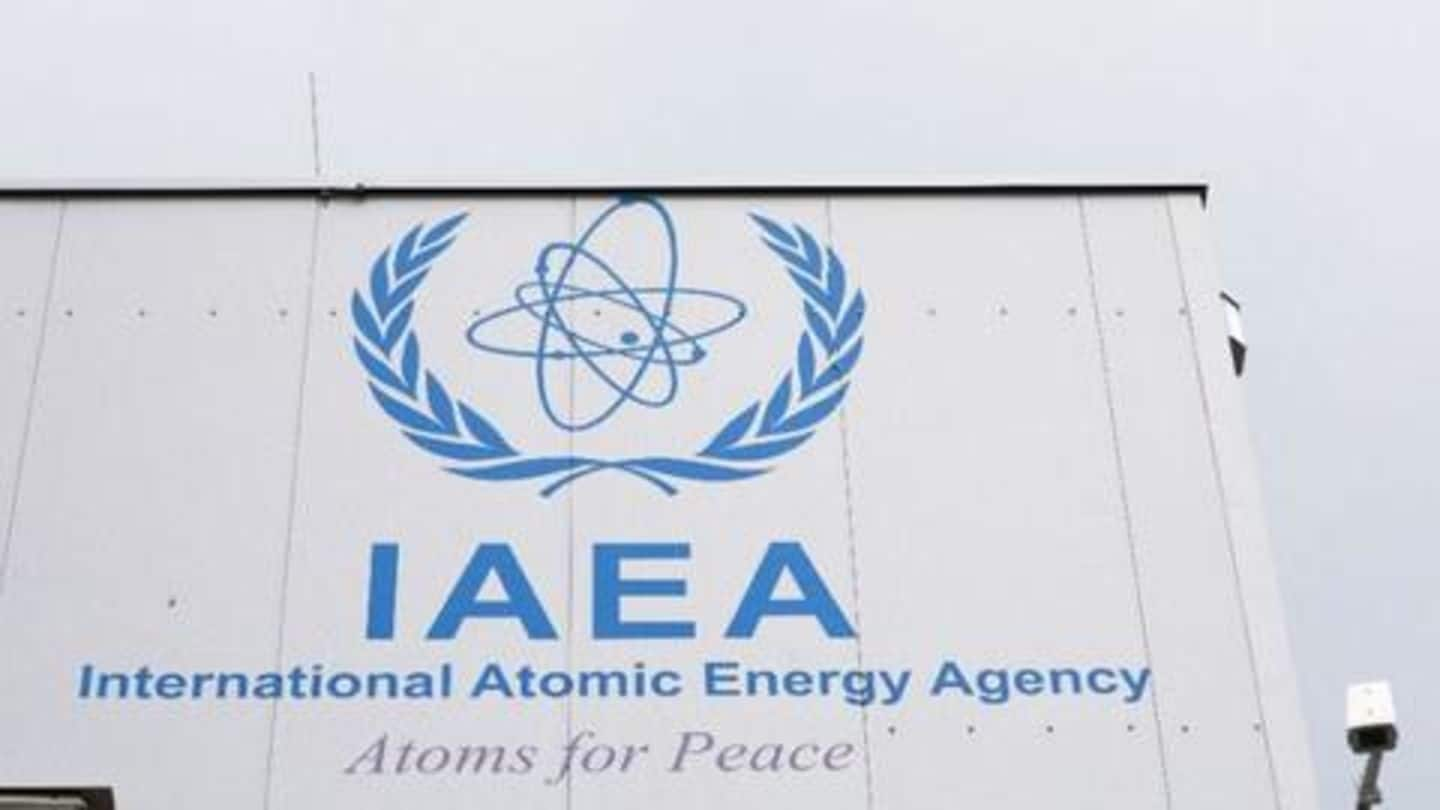
Iran adhering to terms of nuclear deal: UN atomic watchdog
What's the story
Iran has been adhering to a deal with world powers limiting its nuclear programme, the United Nations atomic watchdog said yesterday, as diplomatic wrangling continues over the future of the accord.
The latest report from the International Atomic Energy Agency (IAEA) confirmed that Iran was still complying with the 2015 Joint Comprehensive Plan of Action (JCPOA) with global powers.
Here's more.
Report
Iran's stock of heavy water, uranium within the limits: IAEA
Under JCPOA, Tehran had drastically scaled back its nuclear programme in return for sanctions relief.
The IAEA's latest report showed that over the past three-month period, Iran's stock of heavy water had risen from 122.8 to 124.8 metric tons and that it held 163.8 kg of enriched uranium, up from 149.4 kg in November.
Both levels are within the limits foreseen by the JCPOA.
US stance
Israel welcomed the US withdrawal from the JCPOA deal
Last week, European nations rejected a call from US Vice President Mike Pence to follow the US lead in withdrawing from the Iranian nuclear deal.
Israel has welcomed the US withdrawal from the deal, claiming that Iran is harboring a secret atomic warehouse.
However, the IAEA chief Yukiya Amano rejected the pressure on the agency saying that it is extremely harmful.
Statement
If our credibility is thrown into question, it's harmful: Amano
Without naming specific countries, in January, Amano said, "If our credibility is thrown into question, and, in particular, if attempts are made to micro-manage or put pressure on the Agency in nuclear verification, that is counter-productive and extremely harmful."
In May last year, US President Donald Trump dramatically withdrew from the JCPOA.
This was followed by sweeping new American sanctions on Iran in November.
CIA's stand
Iran was 'technically' in compliance with JCPOA: CIA Director
Trump's own intelligence chiefs have contradicted him over the question of Iran's adherence to the deal.
Last month, Central Intelligence Agency Director Gina Haspel told a Senate hearing that Iran was "technically" in compliance with the JCPOA.
The European Union, along with the European signatories to the deal, collectively known as the E3, has been scrambling to find ways to keep the deal alive.
Payment vehicle
Payment vehicle mechanism 'falling short of commitments by E3': Iran
In an attempt to save the deal, the EU had last month set up a special payments vehicle to bypass US sanctions.
However, while Iran initially welcomed the creation of the vehicle, called INSTEX, as a "first step", last week Iranian Foreign Minister Mohammad Javad Zarif said that the mechanism "falls short of the commitments by the E3 to save the nuclear deal".